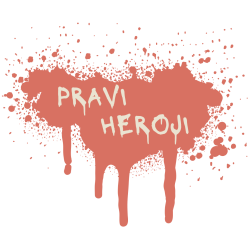Monologues on Dialogue
The elimination of potential interlocutors goes according to the established plan: the Prime Minister has chosen to be a moderator, Minister Mihajlovic will eliminate the Serbian Orthodox Church, and the Academy of Science and Arts is so eaten up by internal divisions that it is not able to deal with the world around.
The remaining potential interlocutors, the opposition, non-governmental organizations and thinking individuals are eliminating each other. A large part of the opposition parties and the leaders immediately gave up on conversation on this subject, because they don’t want to talk to Vucic, because it is outside of their comfort zone, so they chose to sleep over the internal dialogue. Thanks to them, because there is no place for ideas of Bosko Obradovic (who would return Kosovo with tanks), Vuk Jeremic (who opposes Nis- Pristina highway because Albanians would come and buy real estate in Nis) and Sasa Jankovic (who would make such a glorious place out of Serbia that all Albanians would want to live in Serbia, just if we place him in power) is not a place in any serious dialogue. The only one who refused to talk, while at the same time offering some kind of attitude, was Sasa Radulovic, who explained to us in an authorial text that the problem is not with us (Serbs), but in them (Albanians and Western countries), and that he is interested only in the respect of the contracts. In his text, he explains in broad terms that no reality is of interest to him, thus illustrating his understanding of the motive for the NATO intervention “because of the moistening of the president’s penis” (referring to President Clinton, we assume).
After disqualifying themselves, these opposition leaders embarked on a process of disqualification and defamation of those who want to talk about the Kosovo issue with Vucic – Cedomir Jovanovic and Nenad Canak, and even Dragan Sutanovac, who wants to talk to these two. Jovanović and Canak essentially have a common position on Kosovo, unchanged from the coalition they made on this basis in 2007. Canak presented this policy in the presidential elections in April, and was the only one in the campaign who insisted on the topic of Kosovo. Because of his attitude about Kosovo in the past 15 years, Jovanovic has grown into a greater personalization of traitors than Vuk Brankovic.
This brief overview of the political scene is necessary for the contextualization of Surlic’s text, and his attempt to disqualify the part of individuals and organizations who have the courage to say some truths that the US founding fathers describe as self-evident.
Surlic in his text calls a group “which would agree on more than Serbia can accept before the dialogue,” and describes it as extreme, and adds that this group participates in preventing open and free discussion. I personally recognize myself as a part of this group, but I also feel that it I am deprived of open and free discussion by his text, then I ever have deprived anyone. In good faith, I will try to offer answers and objections to Surlic’s conclusions, believing that nobody has the right to exclude someone else from the discussion, and believing that the responsibility of all of us is in any way engaged in matters of the public interest is to finally discuss this subject in a more serious way.
Three models that Surlic singled out, and ruled out in a short procedure, were archived in the real world back in 2006 or earlier, and at the same time are still extremely harmful. What is common to these models and the rest of the social discourse about Kosovo is the absolute negation of historical events and facts that do not support the “Serbian thing”, as well as the current socio-political situation in Kosovo. *(Three models that he mentioned were 1. Frozen conflict, 2. Division of Kosovo, 3. Cyprus model)
Speaking of the models and potential solutions to the Kosovo problem, Surlic, like many others, is acting as if: a) Kosovo Albanians do not exist, that is, they will not be asked and any solution coming from Belgrade will be imposed to them easily, b) the Kosovo Albanians are monolithic group gathered about the common enemy – Serbia. Both views are equally inaccurate, and if they present the starting point, it is certain that the conclusion or the proposed solution will be unsustainable and impossible.
Also, the automatic rejection of the recognition of Kosovo’s independence as an option, after 10 years of actual independence, is simply not serious. In 2017, every monologue / dialogue about Kosovo that pretends to offer solutions that will be applicable in reality must rest on a real rather than desirable current state. I suppose this attitude is a cause for the epistle of the extremists, and someone who disables the dialogue. Don’t shoot the messenger, Kosovo is an independent state for 10 years, it’s almost a 100 percent attitude of all those living in Kosovo (including Serbs and other ethnic minorities), as well as many who do not live in Kosovo. Numbering: The US has recognized Kosovo, Russia did not, Britain did, China did not – except that it will very quickly and unfavorably end up for those who see Russia and China as closest friends and partners of Serbia, is completely irrelevant in the context of an internal dialogue, in which we’re trying to participate.
Finally, we come to a position that is the main cause for this reaction: “the unresolved issues of displaced persons and their property, unprocessed war crimes committed against Serbs and civilian victims of NATO bombing would be legitimized by Belgrade’s decision to recognize Kosovo’s independence.”
This type of propaganda, which describes Serbs as the only victims of the war in Kosovo and NATO intervention, is more mainstream than Beyoncé and Rihanna together. Our recent past is not a Swedish table from which we can take the facts that suit us so that we can compile a meal-narrative as desired. Tired of a permanent fact-twisting campaign, the Youth Initiative provided a chronological overview of events and crimes that led to NATO intervention, the withdrawal of Serbia from the territory of Kosovo, and the subsequent declaration of independence of Kosovo. I believe this kind of review is something that can be useful for understanding the situation as a whole.
The conclusion that in my opinion imposes itself, although it is almost impossible to hear it in the public is very simple. Belgrade’s decision to recognize Kosovo’s independence would at the same time mean recognition that apartheid policy carried out in Kosovo in the late 1980s and 1990s, which culminated in the engagement of the entire Serbian state apparatus for the purpose of ethnic cleansing in Kosovo in 1998 and 1999, was deeply wrong and in its essence criminal. It would also mean that Belgrade renounces that policy and considers the Kosovo Albanians to be equal. That’s why I think it would be the right decision. I do not believe that this will be the conclusion of this internal dialogue but I sincerely hope that we will make such a decision as a society before we sacrifice several more generations of people on the altar of cowardly self-delusional policy.
Unfortunately, it seems to me that President Vučić agrees with Surlic’s view that this type of argumentation has no place in the internal dialogue. It is too difficult to digest, and in the short term guarantees various risks, not only in the current popularity. Still, I do not think that it justifies those who are selectively observing politics and serious social issues – ignore all that is hard, and continue to pretend to live in Disneyland.
The legacy of our past is terribly difficult, as the generation of young people that we belong to, including Surlic nor I deserve it, but this does not free us of responsibility for the generations that come after us if we choose to engage in public work. The precondition for this responsibility is to see the facts as they are, and not what we would like them to be, and to be willing to step forward from the existing models in which our entire public – both the media, political parties, the non-governmental sector, and the academic community work. This is the only way to expand the reach of internal dialogue, and the only way to start building a more promising future.
















